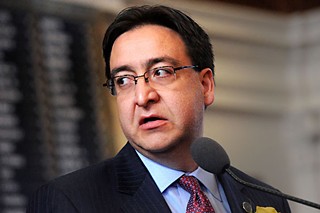Will Perry Throw His Weight Behind Disclosure Law?
Perry counsel conveys the governor's concern about discovery practices
By Jordan Smith, Fri., Jan. 27, 2012

Mary Anne Wiley, deputy general counsel for Gov. Rick Perry, knows her boss has a reputation for being "tough on crime" and as a "very conservative" guy, she told the Texas Criminal Justice Integrity Unit Jan. 20, but he's also "amazed that we have this inequality going on in this state." At issue is the manner in which individual counties in Texas handle discovery requirements in criminal cases – otherwise known as Brady material, shorthand for the 1963 U.S. Supreme Court case Brady v. Maryland. In that case, the court ruled that the state had a duty to turn over to a defendant any exculpatory, mitigatory, or impeachment material that would bear on guilt or punishment for a crime.
While that charge seems fairly straightforward, it hasn't exactly panned out – the most recent, high-profile case where there are allegations that Brady material was illegally withheld is that of Michael Morton, freed last year after spending nearly a quarter-century behind bars for the murder of his wife, a killing that DNA evidence revealed he did not commit. At issue is whether Williamson County prosecutors withheld from Morton's defense exculpatory material that could have kept him from being convicted – or helped the state to apprehend the real killer back in the Eighties.
Lawmakers and lawyers have been wringing their hands for years over whether to pass a statute to standardize discovery practices in Texas, but with little success. Thus, Wiley's comments about her boss' concerns during the TCJIU meeting were welcomed, if unexpected. Discovery issues have become a hot-button topic of late, not only in Texas but across the nation. In Texas, discovery policies vary from county to county, which Wiley says she believes is a distinct problem: "the idea that we do not have uniformity ... it's like justice is different in Smith County than it is in Lubbock County," she said. "As a state, I'm not sure that's a good thing. Justice should be as equal as possible." Stakeholders have to get together to figure it out, she said, to "promote justice"; fixing discovery issues "is just beyond essential." Alpine Democratic Rep. Pete Gallego, also a member of the TCJIU, agreed. "There should be no secrets where justice is concerned," he said. And perhaps, he suggested to Wiley, she could get her boss to help break the logjam that the issue has become in recent sessions. "It would be helpful next time around," he said, "if your boss would be willing to put his weight behind it."
Got something to say on the subject? Send a letter to the editor.









